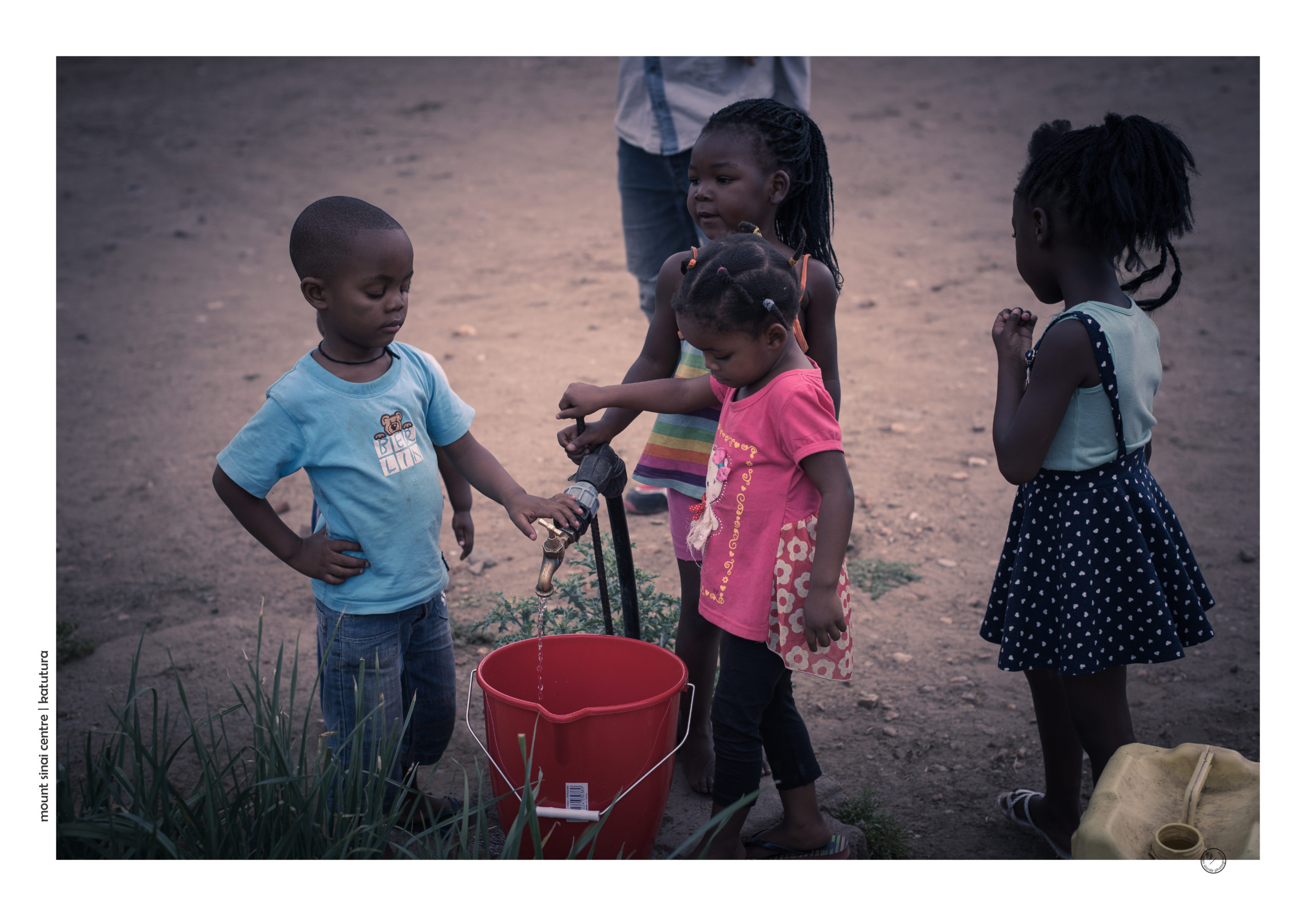Der Wecker klingelt, wir stehen auf und gehen ins Bad. Wir duschen uns, nutzen die Toilette und freuen uns auf das Frühstück. Geschwind füllen wir Wasser und Kaffeepulver in die Kaffeemaschine – schon steigt uns der wohltuende Geruch von frischem Kaffee in die Nase. Während wir den ersten Schluck trinken, haben wir an diesem Tag bereits ca. 90 Liter Wasser verbraucht – so viel, wie vielen Familien weltweit für den ganzen Tag nicht zur Verfügung steht.
Obwohl die Erde zu zwei Dritteln mit Wasser bedeckt ist, gibt es viele Regionen in denen große Wasserarmut herrscht. Das liegt zum einen daran, dass nur etwa ein Drittel dieses Wassers überhaupt trinkbar ist. Ein zweiter Grund ist die sehr ungleiche Verteilung des Wassers auf unserem Planeten. Tatsächlich haben über 2.2 Milliarden Menschen keinen regelmäßigen Zugang zu sauberen Wasser. Laut UNICEF (2022) leidet jedes fünfte Kind weltweit unter Wasserarmut. Dabei sind insbesondere die ländlichen Regionen Afrikas betroffen. In Tansania gibt es für rund 73 % der Landbevölkerung kein sauberes Trinkwasser und nur 17 % hat Zugang zu sanitären Einrichtungen. Ein Mangel an sauberem Wasser führt zwangsläufig zu unzureichender Gesundheitspflege und spiegelt sich direkt in der Anzahl an Erkrankungen wie Durchfall und Cholera wieder. So sterben täglich weltweit mehr als 700 Kinder an Krankheiten, die durch ausreichende Hygiene verhindert werden könnten.
Auch wenn in einigen Teilen der Welt durch den Ausbau von z. B. Kanalisationen die Wasserversorgung verbessert werden konnte, wird die Problematik zukünftig eher verschärft werden: Steigende Temperaturen, ausbleibende Niederschläge und damit verbundene anhaltende Dürren und sinkende Grundwasserspiegel werden weltweit zu einer Zunahme des Wassermangels führen. Die WMO befürchtet, dass bis im Jahr 2050 mehr als fünf Milliarden Menschen davon betroffen sein werden. Nach Angaben der UN wird die Weltbevölkerung dann bis auf 9.7 Milliarden Menschen angewachsen sein. Das bedeutet für mehr als die Hälfte der Menschheit eine mangelnde Trinkwasserversorgung.
Der internationale Weltwassertag ist daher Anlass sich mit dem extrem kostbaren und teuren Gut Wasser intensiver auseinanderzusetzen. Mit dem diesjährigen Motto “Grundwasser, der unsichtbare Schatz“ („Groundwater – making the invisible visible“) wollen die Vereinten Nationen weltweit auf die Bedeutung unseres Grundwassers aufmerksam machen, und es stärker in das Bewusstsein der Menschen rufen. Denn es ist in besonderem Maße von dem Klimawandel betroffen. So führt in einigen Ländern die Erhöhung des Meeresspiegels zu einer Zunahme des Salzgehaltes im Grundwasser. Vielerorts verschlechtern Verunreinigungen durch z. B. Pestizide dessen Qualität. Dabei ist es aber für die Trinkwasserversorgung, die Bewässerung und den täglichen Wasserbedarf dringend notwendig.
Auch das Wasser der Region in Nyangao, rund um das St. Walburg’s Hospital, wird aus rund 40 Meter Tiefe empor gepumpt wird, und ist eigentlich als Trinkwasser wegen seines hohen Salzgehalts nicht geeignet. Dennoch wird es von vielen Anwohnern dort täglich getrunken, da die Alternative von Frischwasser aus Flaschen häufig zu teuer ist.
Es ist zu hoffen, dass der heutige Weltwassertag auch weltweit der zukünftigen Wasserproblematik entgegenwirkt. Vielleicht hilft er, dass wir uns bei unserem allmorgendlichen Ritual ein wenig zum Nachdenken und nachhaltigen Handeln bringt; wir die Dusche nicht ganz so lange laufen lassen, und den Wasserhahn ausdrehen, wenn wir ihn nicht benötigen. Denn seien wir mal ehrlich: Die Tasse Kaffee schmeckt doch auch viel besser, wenn man in der ersten Stunde des Tages schon einen kleinen Beitrag dazu geleistet hat, die Gesundheit der Menschen weltweit zu verbessern?



